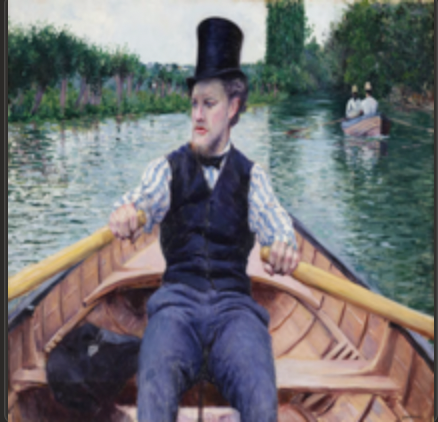
When artist Amy Sherald canceled her LGBTQ-inclusive Smithsonian National Portrait Gallery show “American Sublime” last month, it was just the latest in a series of censorship episodes involving LGBTQ art at major American museums this year.
In February, Washington, D.C.’s Art Museum of the Americas canceled “Nature’s Wild With Andil Gosine” just weeks before the exhibition’s scheduled opening in March, without saying why. The group show was to have include works inspired by Gosine’s 2021 book “Nature’s Wild: Love, Sex and Law in the Caribbean,” which reflects on art, activism and homosexuality in the region.
The same month, Arizona’s Scottsdale Museum of Contemporary Art made eleventh-hour edits to a traveling exhibition of women, queer and trans artists, which had been called “transfeminisms,” altering the title of its condensed show to “There are other skies.”
In April, the Smithsonian National Museum of African Art postponed a group exhibition of works by LGBTQ African artists titled: “Here: Pride and Belonging in African Art,” which had been scheduled for a late May opening to coincide with WorldPride.
The D.C. museum cited budgetary reasons for postponing the show to 2026, but the timing was hard to miss on the heels of the Trump administration directives to the Smithsonian to remove “improper, divisive, or anti-American ideology” from its museums — as well as the forced and pre-emptive relocation of other WorldPride cultural events after Trump administration firings at the Kennedy Center for the Performing Arts.
“There’s something about the combination of art and sexuality that still remains the third rail in the American museum world,” art historian Jonathan D. Katz told NBC News. Katz was the leader curator for “The First Homosexuals: The Birth of a New Identity, 1869-1939,” the vast and successful historical survey of LGBTQ art that ran through early July at Chicago’s Wrightwood 659 Gallery.
Katz traces the roots of modern queer art censorship to the controversial Robert Mapplethorp exhibition “The Perfect Moment,” which — with its provocative imagery, much of it homoerotic — became a cultural lightning rod at the height of the Regan/Bush-era culture wars in 1989-90.
“You’d think that decades later, this would no longer be a live wire, but it still seems to be,” Katz said.
Central to the cancellation of Sherald’s show was her painting “Trans Forming Liberty,” which features a Black trans woman posing as the Statue of Liberty. After she learned that the National Portrait Gallery had “internal concerns” about the painting and planned to replace it or supplement it with a video to provide “both sides” of its trans subject matter, Sherald balked and canceled her entire show, which would have been the museum’s first solo exhibition by a Black contemporary artist.
“While no single person is to blame, it’s clear that institution fear shaped by a broader climate of political hostility towards trans lives played a role.” Sherald, who rose to fame when she painted former First Lady Michelle Obama’s official portrait, said in a statement after the cancellation. “At a time when transgender people are being legislated against, silenced, and endangered across our nation, silence is not an option.”
The National Portrait Gallery is one of eight Smithsonian museums targeted as part of the first phase of an expansive review announced by the Trump administration on Tuesday. The review will analyze all aspects of current and future museum exhibitions to ensure alignment with the president’s March executive order calling for “Restoring Truth And Sanity to American History.”
In a statement to NBC News, the Art Institute of Chicago said its “Painting His World” title is more illustrative of what people will see when they come to the exhibition, which “reflects Cailebott’s full lived experience and daily life, including his personal relationships with the men in his life, like his brother, colleagues, and friends.” The institute added that it’s “common practice” for the same exhibition to have differing titles and wall labels when it’s at different museums.”
The Smithsonian National Museum of African Art – which was not included in the Trump administration’s Phase 1 Review — said in a statement on Tuesday that the postponement of its LGBTQ exhibition was due to private funding challenges and that pushing it back to early 2026 “provide the museum additional time to increase fundraising for the exhibit.”
